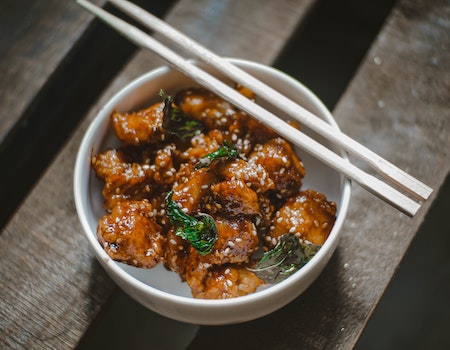Korean Culture: 6 Tips for a Smooth Trip
Korea is a country with a long and diverse history, and it’s no surprise that its culture presents many unique characteristics and ways of doing things that can be both fascinating and confusing for Americans. From dining out to visiting a Korean bathhouse, you will surely need some help to navigate Korean culture smoothly, avoid making mistakes and make the most of your trip.
Whether you’re visiting for business or pleasure, here are some basic tips on Korean culture that will be essential to an enjoyable stay in the Land of the Morning Calm.
→Sign Up Now: Free Trial Korean Lesson With a Native Speaker Teacher!←
Korean Restaurants: What to expect and how to behave
- Press the button. In Korean restaurants, there’s no need to start waving every time you want to call the server’s attention. If you’re ready to order, just press the button at your table to summon staff.
- Learn to share. They say “sharing is caring”, and it certainly applies to Korean restaurants. Sharing meals is part of the Korean culture – so don’t be surprised if your server comes to your table with a few extra dishes. This simply means that they expect you to share your meal with others at the table.
- No tipping culture. Unlike in the U.S., leaving a tip at a Korean restaurant is considered impolite and unnecessary, which means you get to save a few extra bucks after your meal!
- Hand wipes. Cleanliness is key in Korean culture and hand wipes are a must when eating out. Traditionally, Korean restaurants provide two hand wipes as part of the meal, one of them when you place your order, and one of them after you finish your meal.

Public Bathrooms in Korea: Everything you need to know
- Bring your own paper! Most public restrooms in Korea have no toilet paper, so make sure to bring your own. Otherwise, you may find yourself in quite a sticky situation.
- No trash can, no problem. If there is no waste bin for used toilet paper, don’t worry. In fact, most public bathrooms don’t have trash cans due to hygiene reasons. Plus, toilet paper in Korea is water-soluble so there’s no need to worry about clogging. Just throw it in the toilet and it will be all right.
- Squat toilets. Most public toilets are squat toilets, which means you will have to do your business while squatting. Don’t worry though, most of them also have at least a couple of seat toilets, so you’ll generally be able to choose which one you prefer.
- Bidets. If you want to experience the most luxurious way of keeping yourself clean after using the restroom, opt for a bidet toilet. A bidet is specialized bathroom equipment that’s attached to a toilet and splashes fresh water to clean your private areas. Most public restrooms in Korea have bidets, so don’t be afraid to give them a try!
Manners in Korea: No time for pleasantries
- Atchoo! In Korea, it is considered rude to say “bless you” after someone sneezes. Instead of saying its equivalent in Korean, 좋은아침 (joeun-ahchim), simply pretend that nothing happened and move on with the conversation. No blessings needed, thank you!
- Hold your own door. Koreans generally don’t open or hold doors for one another, so be careful or you may find yourself with an unexpected door closing in front of you!
- In Korea, it’s not uncommon for people to stare at one another in public. While it may seem rude to some people, it rarely has a malicious intention. On the contrary, it means that they may be interested in what you’re wearing or saying.
Public transport: Not for claustrophobics!
Prepare for the crowd. Connecting with public transport in Korea is quite common and it can be quite a challenge if you’re not used to it. If you’re thinking of getting on a bus in big cities such as Seoul or Busan. So get ready for tight spaces, loud noises and lots of people.
How to wear your backpack. If moving around inside a crowded bus is difficult enough, wearing your backpack can make it even harder. To avoid being uncomfortable and annoying other passengers, always wear your backpack in front instead of on your back.
Finish your Soju before getting on the subway! Drinking in public spaces is prohibited in Korea, so make sure to finish your beverage before entering the subway. Otherwise, the staring will get awkward.

Korean Bathhouses: the etiquette and what to do inside a
- What is a jjimjilbang? Jjimjilbang is a type of bathhouse in Korea, where you can relax and rejuvenate. It’s like a spa, but it also has saunas, jacuzzis and other amenities for relaxation and healing.
- Gender policies. Korean bathhouses have two clearly defined areas: the baths, where only those of the same sex can enter, and then the sauna area which is shared by everyone.
- Shower before entering the pools! Before entering any pool or onsen area in a jjimjilbang, it is important to shower before sweating it out! As a matter of fact, there are usually strict rules regarding this and not following them can get you into trouble.
Korea is a fascinating country with plenty of unique cultural norms and practices. Whether you’re looking to explore a traditional Korean restaurant, check out its public transportation system, or visit a Korean bathhouse, make sure to research its cultural customs beforehand so you can be prepared for any surprises that lie ahead and avoid making cultural missteps. Korean culture is quite complex, but with a bit of knowledge and respect for its customs, you can have a great time exploring the country.
The importance of learning the Korean culture AND language before you travel
Of course, if you’re planning on visiting Korea for an extended period of time, it’s always beneficial to learn the language. It doesn’t have to be perfect, but knowing a few key phrases can go a long way in helping you communicate with locals. And even if you’re not planning on staying in Korea for more than a few days, learning how to read Hangul (the Korean alphabet) can help you understand directions, menus, and other written materials.
→Sign Up Now: Free Trial Korean Lesson With a Native Speaker Teacher!←
Knowing the basics of the Korean language will help you understand the culture better and can also help you find your way around. Plus, it offers a great opportunity to make new friends and practice your language skills!
At Language Trainers, we work with native-speaking Korean teachers to provide customized language courses tailored to your needs, and we offer flexible one-to-one lessons, designed to help you learn quickly and effectively. So, if you’re interested in learning Korean and making your trip to Korea even more memorable, get in touch today and we’ll arrange a free trial lesson for you!
